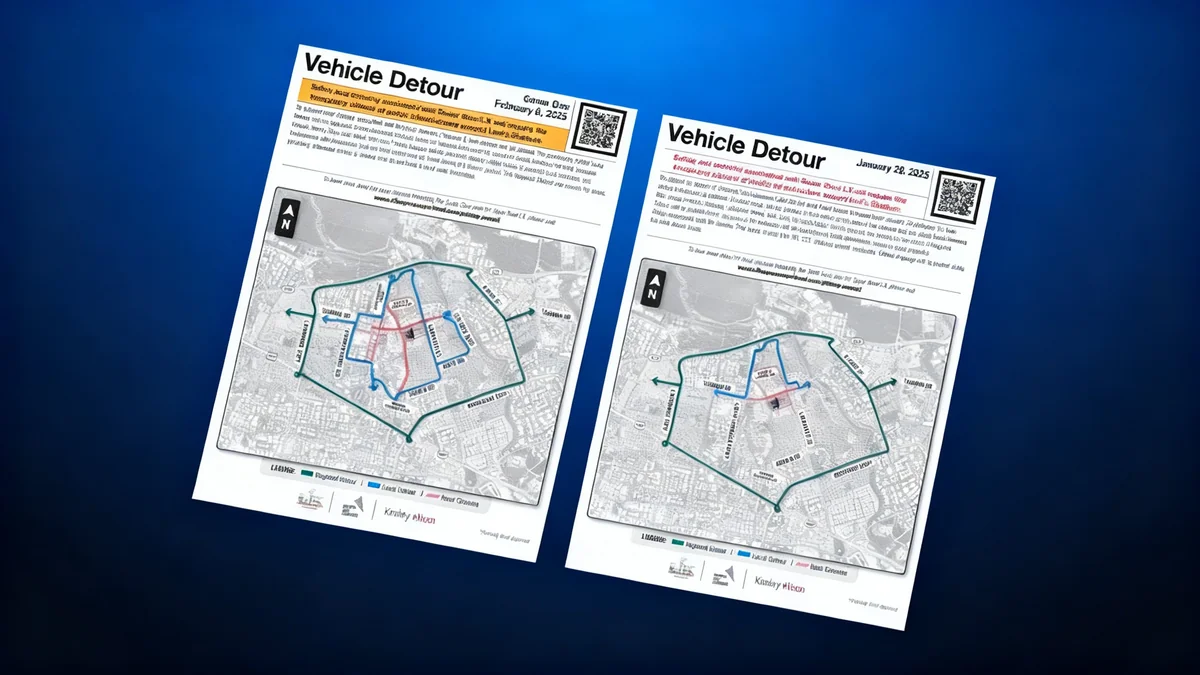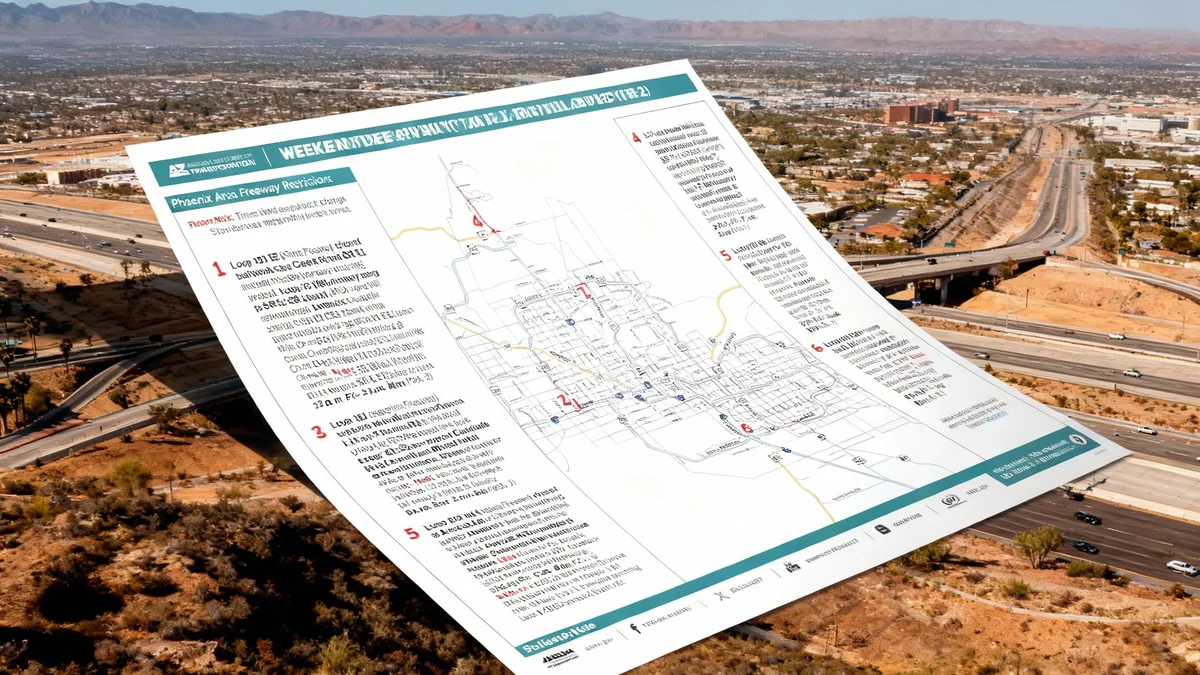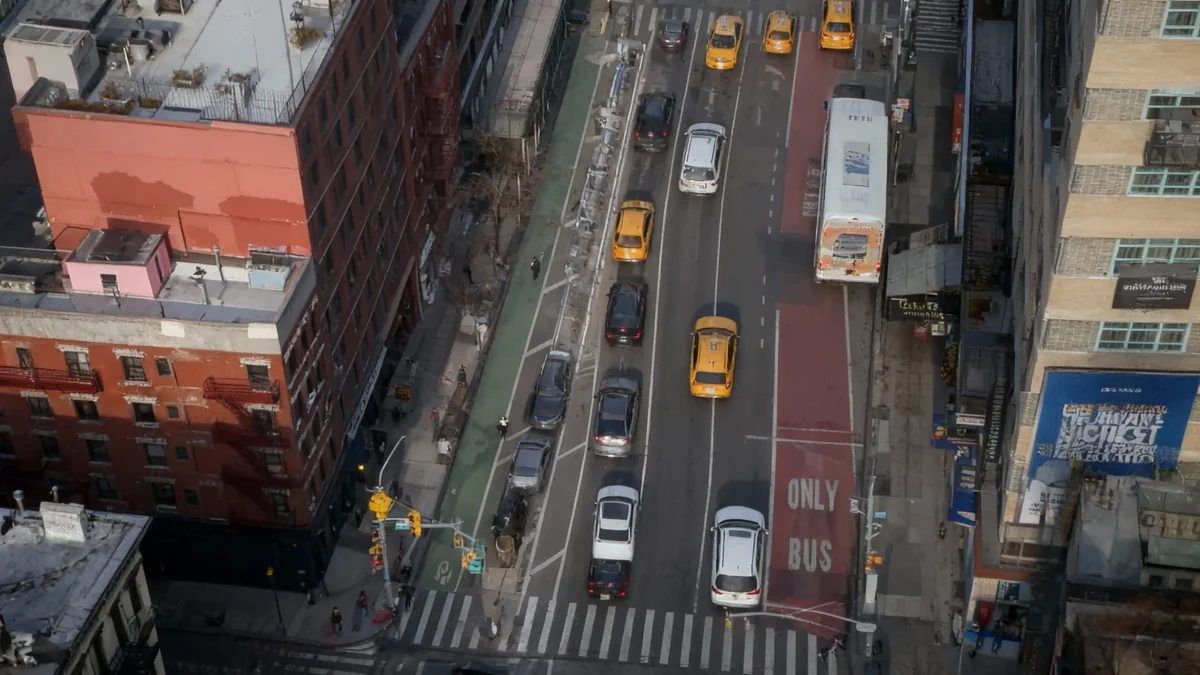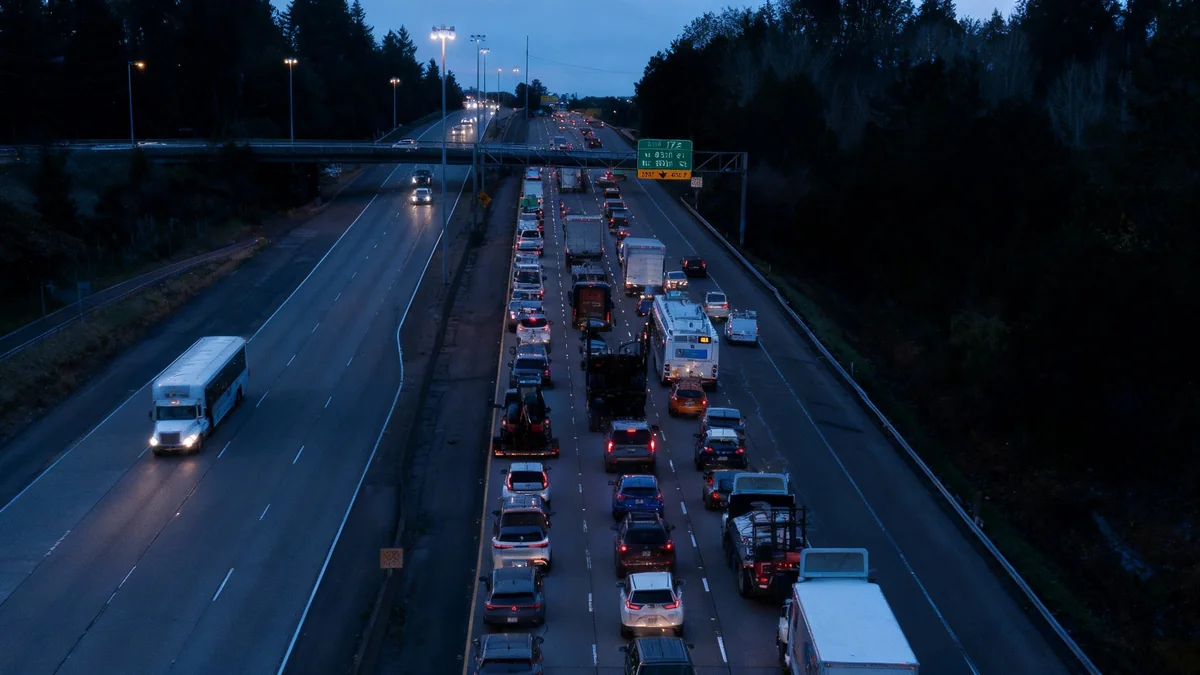Bulgaria anticipates heavy traffic on major roads, highways, and border crossings for the upcoming three-day Independence Day holiday, observed around September 22. Authorities are implementing measures to manage congestion, particularly on routes leading to Greece. This comes as several other key local and national developments unfold across the country, affecting residents and infrastructure.
Key Takeaways
- Heavy traffic expected for Independence Day holiday, especially on the road to Greece.
- Traffic management measures include reversible lanes and increased police presence.
- Sofia's Vrana Park to open by year-end with free admission.
- "Druzhba 2" residents protest extended heating and hot water outage.
- Over 16.5% of Bulgaria's population faces severe material and social deprivation.
Holiday Travel and Traffic Management
The three-day holiday period around Bulgaria's Independence Day on September 22 is expected to significantly increase road traffic. The Ministry of Interior and the Road Infrastructure Agency (RIA) have announced specific plans to ease potential bottlenecks. Travelers should prepare for delays, particularly on routes connecting to neighboring countries.
One primary concern is the road leading to Greece, identified as a major traffic hotspot. To address this, authorities will introduce reversible traffic lanes near Simitli. This strategy aims to optimize traffic flow by dedicating more lanes to the direction with higher demand. Additionally, two lanes will be directed towards Kulata, a key border crossing, and Bansko, a popular destination.
"We are taking proactive steps to ensure smoother travel for citizens during the Independence Day holiday. Our goal is to minimize congestion and enhance road safety across the network," a Ministry of Interior representative stated.
A visible increase in police presence will also be implemented across Bulgaria's entire road network. This measure is intended to enforce traffic laws, respond to incidents quickly, and guide motorists. The enhanced police patrols will cover highways, main roads, and critical intersections.
Traffic Fact
The use of reversible lanes is a common traffic management technique applied during peak travel periods to dynamically adjust road capacity.
Local Developments in Sofia
Several significant local developments are currently underway in Sofia, impacting residents and public spaces. These include the anticipated opening of a major park and a community protest regarding essential services.
Vrana Park to Open Soon
Vrana Park, a notable green space in Sofia, is projected to open to the public by the end of the year. This long-awaited opening will provide residents with a new recreational area. The park's entrance will be free of charge, making it accessible to all citizens.
The opening of Vrana Park represents a positive addition to Sofia's urban environment, offering a space for relaxation and outdoor activities. It has been a subject of public interest for some time, and its impending availability is widely anticipated.
Heating Outage Protest in Druzhba 2
Residents of Sofia's "Druzhba 2" neighborhood are protesting against a scheduled overhaul of the district heating network. This project will result in a significant disruption to heating and hot water services, planned to last from early October until December 30. This extended period covers a substantial part of the colder months, raising concerns among the affected population.
The protest highlights community dissatisfaction with the timing and duration of the planned infrastructure work. Residents are calling for alternative solutions or a revised schedule to mitigate the impact on their daily lives during winter. The issue directly affects household comfort and daily routines for a large number of people in the district.
Background on District Heating
District heating systems provide heat to multiple buildings from a central source. While efficient, maintenance and upgrades can lead to widespread service interruptions if not managed carefully.
National Economic and Weather Overview
Beyond travel and local issues, national data reveals economic challenges for a notable portion of Bulgaria's population. The country's weather forecast also indicates stable conditions for the end of the week.
Deprivation Levels in Bulgaria
According to Eurostat figures from last year, over 16.5% of Bulgaria's population lives under severe material and social deprivation. This statistic indicates a significant portion of the population struggles with basic necessities and social inclusion. Such deprivation can impact various aspects of life, including health, education, and overall quality of living.
The data underscores ongoing economic challenges within the country. Addressing these issues remains a key focus for national policy and social programs. Understanding the scope of deprivation is crucial for developing effective support mechanisms.
- Material deprivation includes inability to afford items like unexpected expenses, a car, or a meal with meat every second day.
- Social deprivation covers aspects like not being able to participate in social activities or meet friends for a drink/meal regularly.
Weekend Weather Forecast
For the last working day of the week, minimum temperatures across Bulgaria are expected to range between 6°C and 11°C. In Sofia, the minimum temperature is predicted to be around 7°C. The forecast for Friday indicates mostly sunny conditions across the country.
This weather pattern suggests a generally clear and mild day, suitable for travel and outdoor activities ahead of the holiday weekend. Travelers should still monitor local forecasts for any sudden changes, especially if planning to visit mountainous regions.
Did You Know?
Eurostat is the statistical office of the European Union, providing comparable statistics at a European level.





